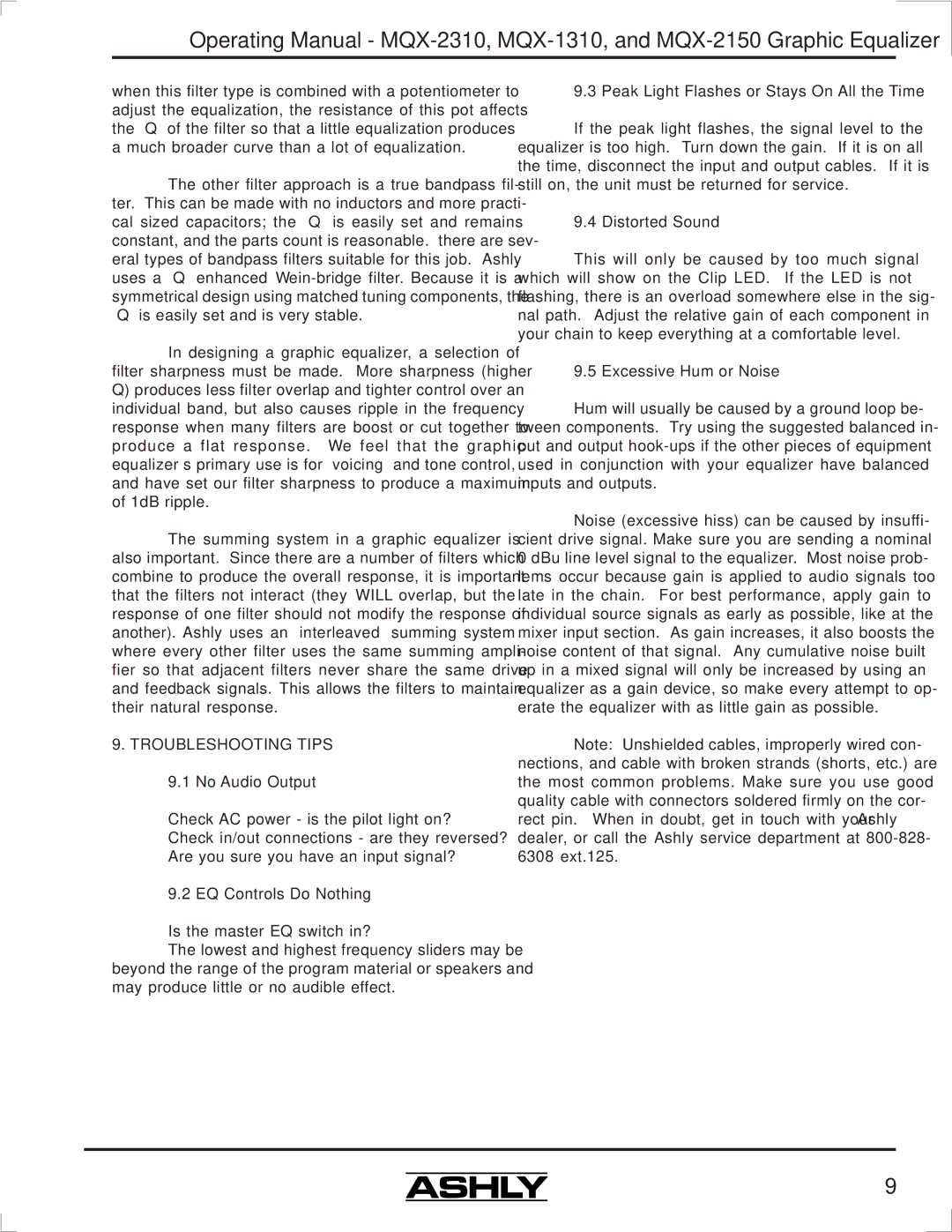MQX-2310 specifications
The Ashly MQX-2310 is a powerful, state-of-the-art audio mixing console designed for professionals who demand reliability and exceptional performance in live sound and recording environments. This versatile mixer provides a range of features that cater to both the novice user and the seasoned professional, making it an ideal choice for various applications, including concerts, theater productions, and studio recordings.One of the standout features of the MQX-2310 is its 32 input channels. This allows users to connect multiple instruments and microphones, making it a perfect fit for larger ensembles. Each channel comes equipped with a three-band equalizer, enabling precise sound shaping to ensure that every instrument or vocal sits perfectly within the mix. Additionally, users have access to a comprehensive set of input options, including XLR and TRS connections, which help streamline the setup process.
The MQX-2310 also offers a highly intuitive control layout, with clearly marked knobs and faders making it easy to navigate through various settings. Its 10 faders allow for smooth adjustment of levels, while a bright LED metering system provides visual feedback on levels, ensuring optimal gain staging. The mixer’s balanced output ensures that the sound signal maintains its integrity over long cable runs, a crucial feature for live performance.
Another key technology is the built-in digital effects processor, which includes various reverb, delay, and modulation effects. These effects can be applied to individual channels or the main mix, allowing users to enhance their sound without the need for additional outboard gear.
The Ashly MQX-2310 is also designed with durability in mind. Its rugged metal chassis can withstand the rigors of transport and continuous use, making it well-suited for mobile applications. Furthermore, the mixer’s components are designed to minimize electromagnetic interference, ensuring a clean audio signal free from unwanted noise.
With its versatile features, intuitive design, and robust construction, the Ashly MQX-2310 stands out as a top choice for audio professionals seeking a reliable mixing solution. Whether in the studio or on stage, this mixer provides the tools necessary to create high-quality sound that meets the expectations of the most discerning audiences.

